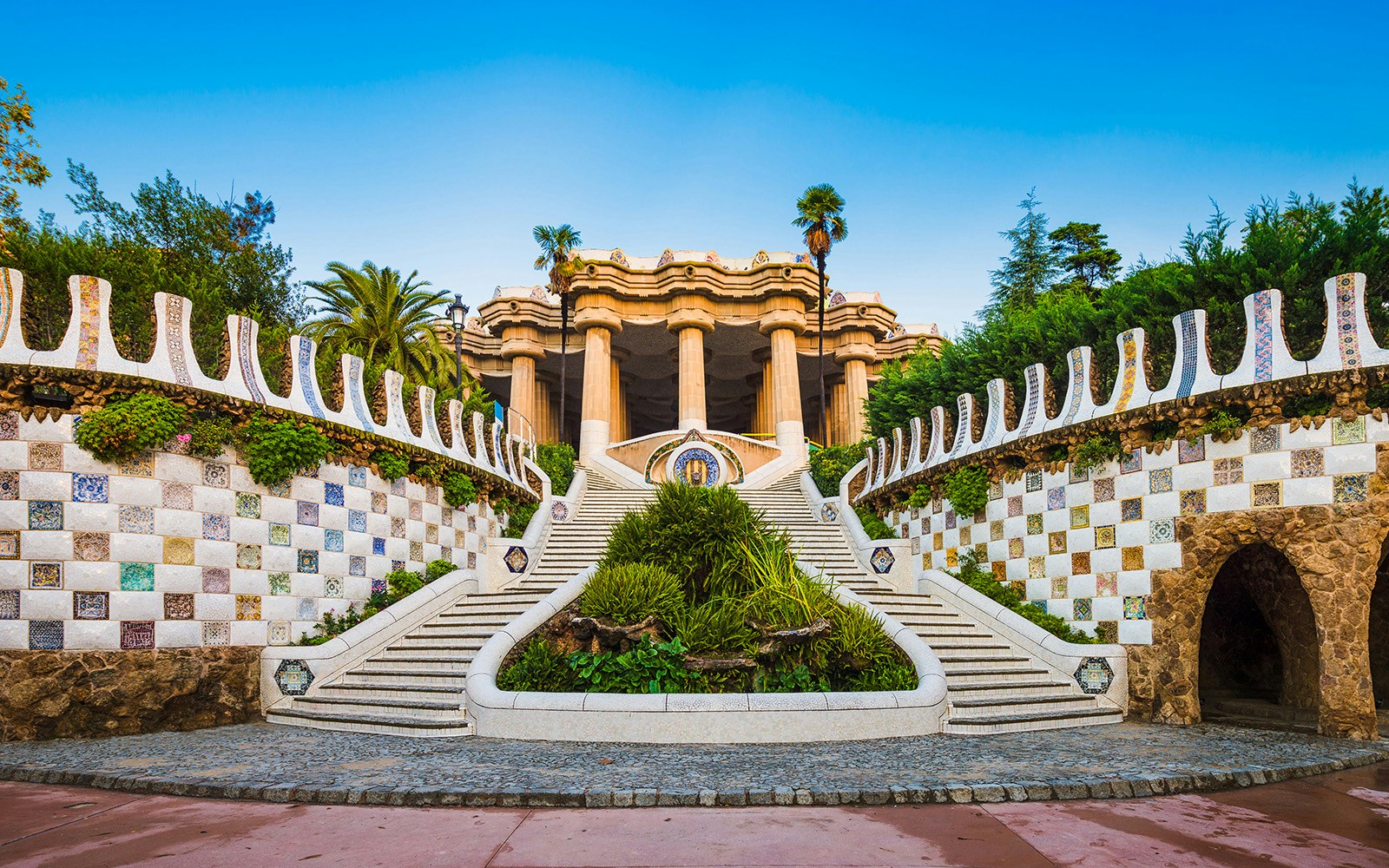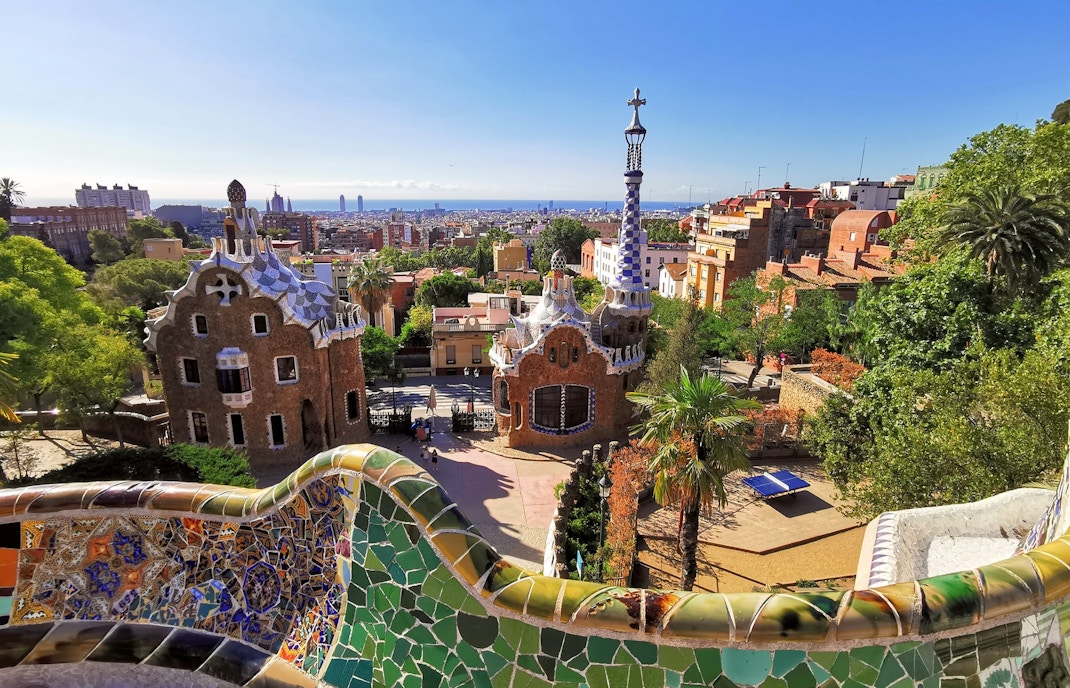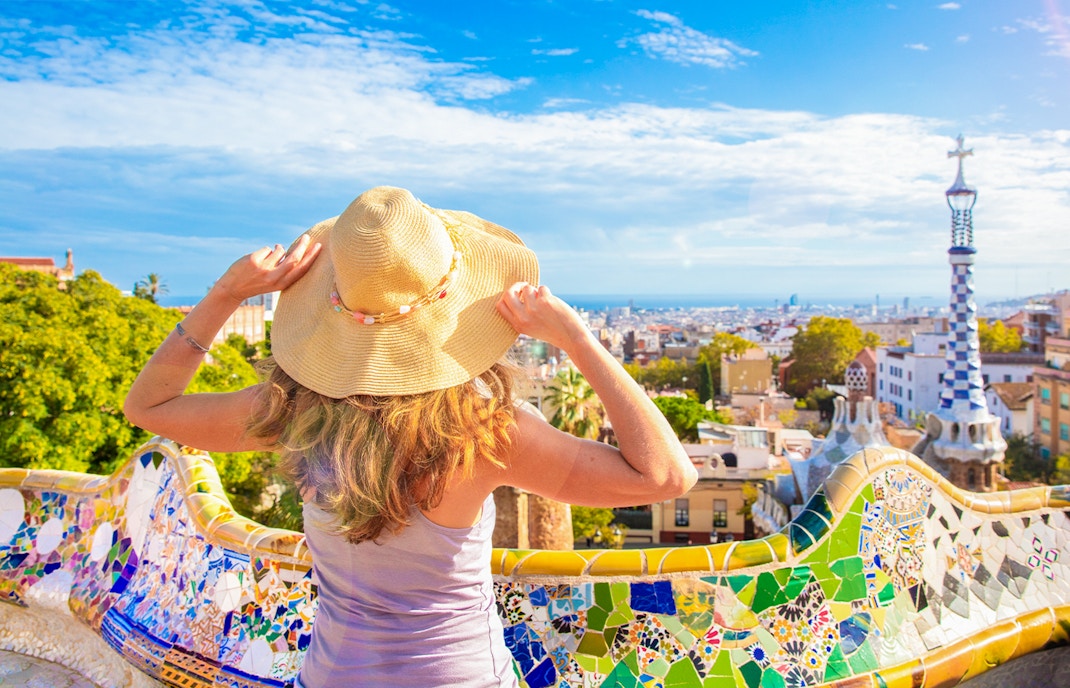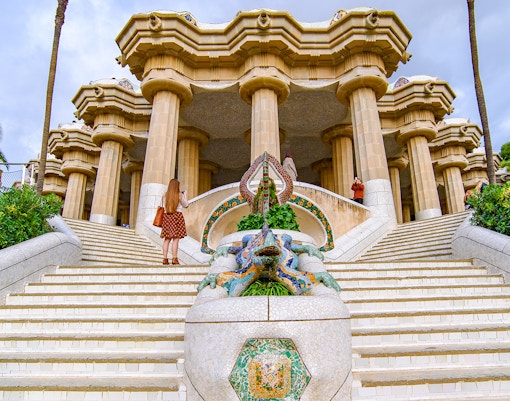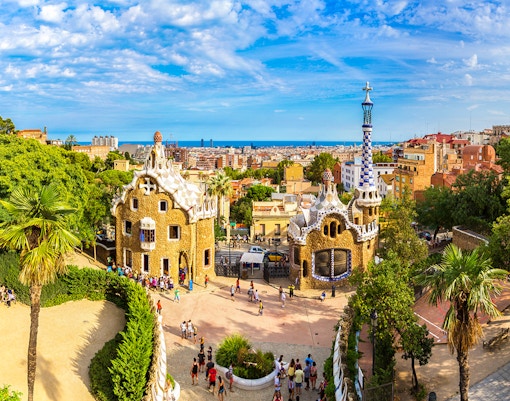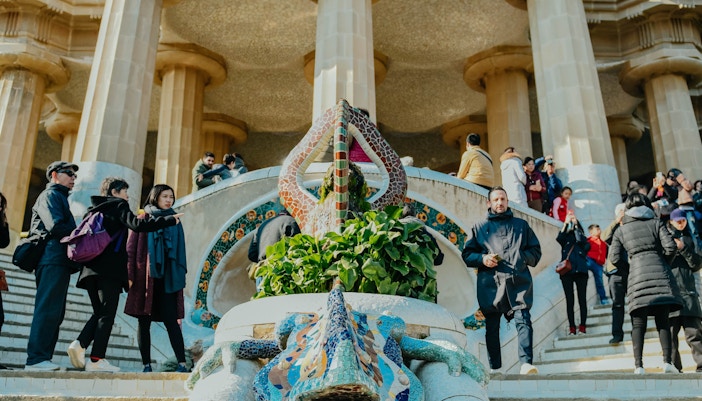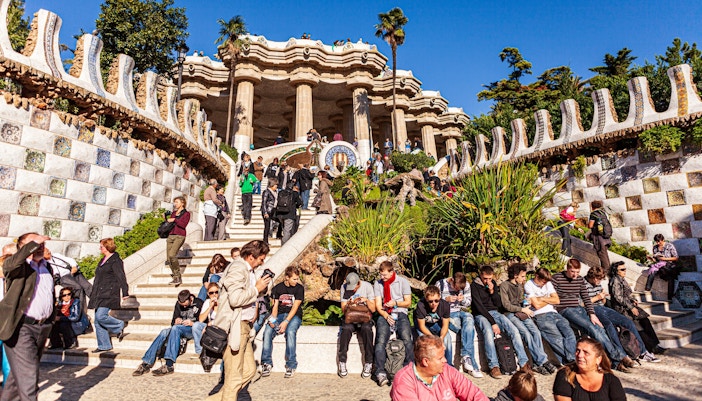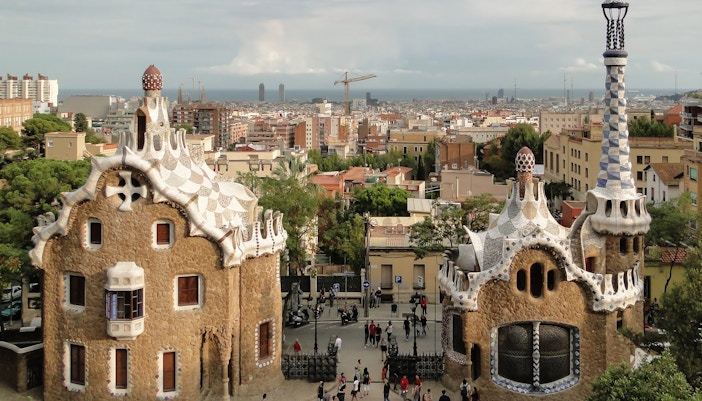Design & architecture of Park Güell
The natural beauty of Park Güell is planned in a way to provide the serenity and quiet that a park may offer. The green space is interspersed with creations by Gaudí that blend seamlessly with the nature that surrounds it.
You will find evidence of Gaudí's signature Modernisme style throughout the park. Visitors will also get to see the use of Trencadis throughout the park. Gaudí firmly believed that there were no straight lines or sharp corners in nature, and so, the entire park features curved lines and fluid designs.
Guests will find various animals throughout the park, designed in Trencadis mosaic. The most famous of these creations is the El Drac, located at the entrance to the park. Park Guell also includes motifs from Catalan nationalism, religious mysticism, and ancient poetry. From its highest point, the park features a stone hill with numerous steps leading to a platform where three large crosses are mounted. The official name of this is "El Turo de les Tres Creus," however, it is popularly called Calvary. From here, you can enjoy panoramic views of Barcelona.
More about design & architecture of Park Güell

